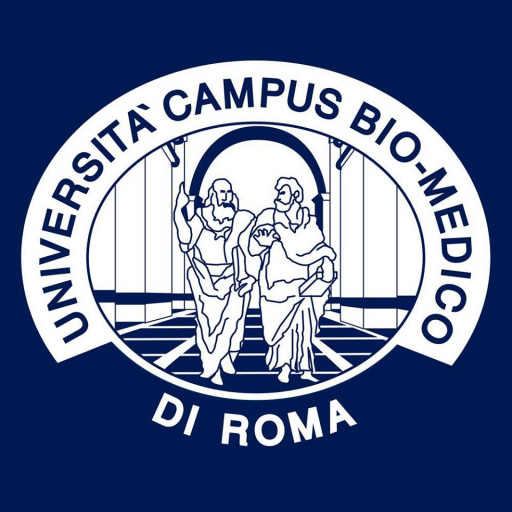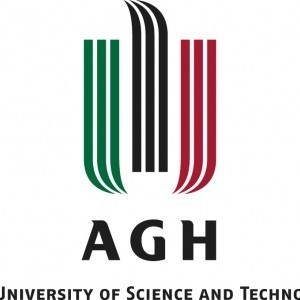Photos of university / #imperialcollege
The Master of Chemical Engineering (Advanced) at Imperial College London is a rigorous and in-depth postgraduate programme designed for students seeking to deepen their expertise in chemical engineering principles and processes. This course offers a comprehensive curriculum that combines advanced theoretical knowledge with practical skills, preparing graduates for leadership roles within the chemical, pharmaceutical, energy, and materials industries. Throughout the programme, students will engage with a broad range of topic areas, including process design, reaction engineering, thermodynamics, and sustainable engineering practices. The programme emphasizes innovation and research, encouraging students to develop critical thinking and problem-solving abilities that are essential for addressing complex industrial challenges.
Students will have access to state-of-the-art laboratories and facilities at Imperial College, enabling hands-on learning and experimentation in areas such as process simulation, materials analysis, and environmental impact assessment. The curriculum is structured to include core modules complemented by optional courses, allowing students to tailor their studies according to their interests and career aspirations. Additionally, the programme incorporates opportunities for industrial placement, collaborative projects with leading companies, and engagement with cutting-edge research groups within the department.
The programme aims to produce graduates who are not only skilled engineers but also innovative thinkers capable of pushing the boundaries of current technologies. Graduates of the Master of Chemical Engineering (Advanced) can pursue professional careers in process development, research and development, consultancy, and managerial roles across various sectors. Imperial College London’s strong links with industry and its emphasis on practical application ensure that students are industry-ready upon graduation. The programme also provides a solid foundation for those intending to proceed to PhD research or roles in academia. With its renowned faculty, extensive resources, and strategic location in the heart of London, the Master of Chemical Engineering (Advanced) offers an unparalleled environment for advanced learning and professional development in chemical engineering.
Advanced Chemical Engineering at Imperial College London offers a rigorous and comprehensive curriculum designed to equip students with a deep understanding of chemical engineering principles and advanced technological skills. The programme covers a broad range of topics, including process design, reaction engineering, thermodynamics, transport phenomena, and integrated systems. Students will engage with core modules that provide a solid foundation in chemical process principles, alongside specialised options that allow them to tailor their studies to areas such as biotechnology, sustainable energy, or advanced materials. The programme emphasizes practical experience through laboratory work, industry projects, and opportunities for research collaborations, preparing graduates to meet the complex challenges of modern chemical industries. The course also includes training in process simulation, safety management, and environmental considerations, ensuring that students are well-versed in both technical and regulatory aspects of chemical engineering. By the end of the programme, students will have developed the analytical and problem-solving skills necessary to innovate in fields like pharmaceuticals, energy, and materials manufacturing. The Advanced Chemical Engineering MSc at Imperial is ideal for those seeking to deepen their expertise, enhance their career prospects, and contribute to technological advancements in the chemical sector globally.
A strong foundation in chemistry and engineering principles is essential for admission to the Advanced Chemical Engineering MSc programme at Imperial College London. Applicants are typically required to hold an undergraduate degree in chemical engineering or a closely related discipline, demonstrating excellent academic performance and relevant practical experience. The programme emphasizes both theoretical knowledge and practical skills, so prior exposure to process design, thermodynamics, fluid mechanics, heat and mass transfer, and chemical reaction engineering is highly advantageous. Candidates should have developed competencies in laboratory experiments, programming, and data analysis, reflecting the integrated nature of chemical engineering processes. In addition to academic qualifications, applicants must provide evidence of proficiency in English language, such as IELTS or TOEFL scores, to ensure effective participation in lectures and seminars conducted entirely in English. Work experience in the chemical, petrochemical, or related industries may strengthen an application, although it is not an explicit requirement. The admissions process evaluates candidates holistically, considering prior coursework, motivation, and potential for research and professional development. Once admitted, students are expected to engage actively in coursework, group projects, and research activities, which prepare them for leadership roles in complex chemical processes and innovative engineering solutions. The curriculum is designed to develop advanced understanding of process optimization, sustainable energy production, and environmental impacts, aligning with the global demand for environmentally responsible industrial practices. International students should be prepared to meet visa requirements and demonstrate cultural adaptability to fully participate in the programme. Successful completion of the MSc programme qualifies graduates for careers in process engineering, research and development, consultancy, and management within the chemical and allied industries, with a solid academic foundation as a stepping stone for doctoral studies or professional accreditations in chemical engineering.
The Advanced Chemical Engineering MSc program at Imperial College London offers a range of financing options to support students throughout their studies. prospective students are encouraged to explore various sources of funding to help alleviate financial burdens and focus on their academic and professional development. Imperial College London provides scholarships, bursaries, and awards dedicated to postgraduate students, including those enrolled in the Advanced Chemical Engineering program. These financial aid opportunities are often offered based on academic merit, financial need, or specific eligibility criteria, and applicants are advised to review the college's official scholarships webpage regularly for updates and application deadlines. Additionally, many students seek external funding sources such as government grants, research council awards, and industry sponsorships. The UK government offers loans and grants for eligible students, which can cover tuition fees and living costs. International students may also find scholarship programs sponsored by their home countries or international organizations that support students studying abroad. The university’s dedicated financial aid office provides comprehensive guidance on available funding opportunities, application processes, and eligibility requirements. Furthermore, Imperial College London has partnerships with industry leaders and research institutions that sometimes offer fellowships and sponsored research opportunities, allowing students to gain practical experience while reducing financial strain. Students are encouraged to apply early and prepare a strong application to increase their chances of securing funding. Cost considerations such as accommodation, course material fees, and personal expenses should also be planned in advance, and students can access advice from the college’s student finance team for budgeting strategies. Overall, while studying the Advanced Chemical Engineering MSc at Imperial College London requires a significant financial commitment, numerous funding options and financial aid resources are available to help students achieve their academic goals without undue economic hardship.
The Advanced Chemical Engineering MSc program at Imperial College London is a postgraduate degree designed for individuals seeking to deepen their expertise and broaden their skills within the field of chemical engineering. This program offers a comprehensive curriculum that integrates advanced theoretical principles with practical applications, preparing graduates for leadership roles in the chemical process industries, research, and academia. The program typically spans one year of full-time study, during which students engage with a diverse set of modules covering topics such as process systems engineering, reaction engineering, thermodynamics, process design, and modeling. Students also have opportunities to undertake research projects, which may involve collaboration with industry partners or experimental work within state-of-the-art laboratories. The program emphasizes innovation, sustainability, and the development of new techniques to address global challenges such as energy efficiency, environmental impact, and resource management. Students benefit from the college's strong links to industry, enabling exposure to real-world problems and networking opportunities. The program is suitable for graduates with a background in chemical engineering or related disciplines, seeking to enhance their technical skills and advance their careers in areas such as process engineering, project management, and consultancy. Imperial College London's robust research environment and distinguished faculty contribute to a rich educational experience, fostering critical thinking and problem-solving abilities. Graduates of the Advanced Chemical Engineering MSc program are equipped with the latest knowledge and skills to influence technological advancements and drive sustainable development in the chemical and process industries.








